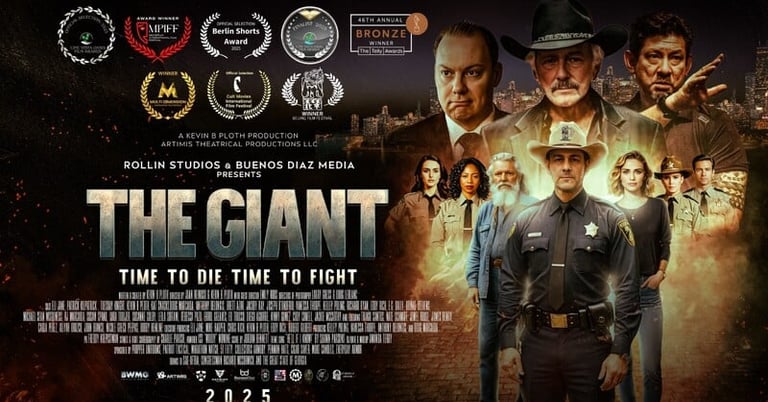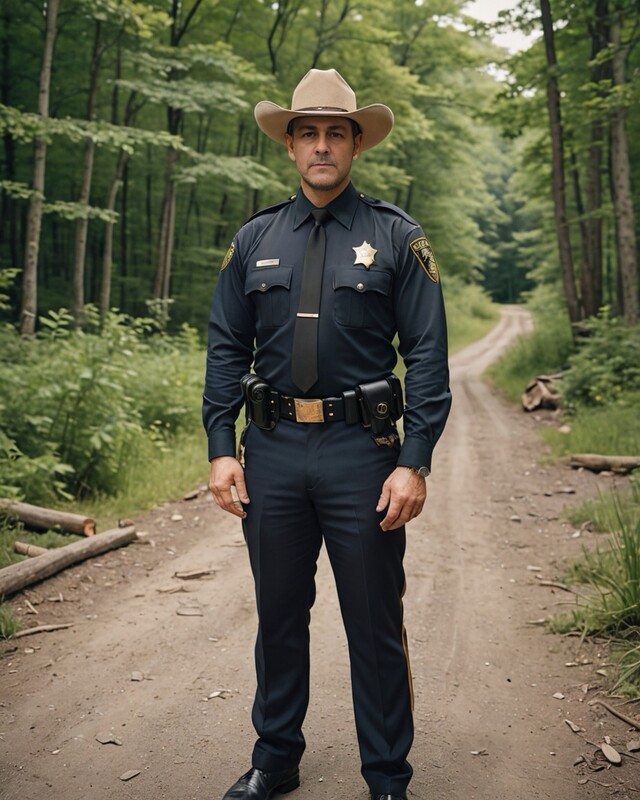The GIANT
Written by : Kevin B Ploth
Kevin B. Ploth’s The GIANT is an emotionally gripping, slow-burn screenplay that pulls the reader deep into the world of a modern-day sheriff whose journey begins with the pursuit of justice and ends in the confrontation of a painful, life-altering truth. This is not a flashy, over-the-top law enforcement drama, it’s a grounded, character-driven exploration of morality, grief, and the quiet devastation that truth can bring.
From the opening pages, the tone is set with a measured, almost haunting pace. We are introduced to a sheriff who feels real, not an untouchable Hollywood archetype, but a man shaped by years of service, worn down by the daily burdens of responsibility, yet still clinging to his sense of duty. He walks a fine line between being respected as a figure of authority and struggling as a human being weighed down by his own private battles.
Ploth’s writing style is unhurried but deliberate, allowing the audience to immerse themselves in the sheriff’s environment, small-town streets where everyone knows each other, rural landscapes that hold both beauty and isolation, and a community where secrets are buried just beneath the surface. These settings are not just backdrops; they become part of the storytelling, reflecting the emotional tone of each scene.
As the sheriff begins his investigation, the reader is drawn into a mystery that feels as much about people as it does about events. The encounters he has with townsfolk, colleagues, and those connected to the case are written with a quiet tension. Dialogue is sharp but understated, revealing as much in what is left unsaid as in the spoken words. Every interaction peels back a layer, hinting that the truth he seeks is not only difficult to find but may also be devastating to confront.


The screenplay’s emotional power lies in its gradual revelation. At first, the sheriff’s quest seems like a straightforward search for justice, but Ploth skillfully builds a sense of unease, allowing small clues and emotional beats to accumulate until the reader begins to suspect the tragedy at the heart of the story. By the time the truth emerges, it is not delivered as a cheap twist, but as an inevitable and deeply human heartbreak - one that reshapes the sheriff and leaves a lasting emotional impact.
Visually, Ploth has a talent for cinematic imagery: the golden haze of sunset over farmland, the lonely hum of a fluorescent-lit sheriff’s office at midnight, the weight of silence in an interrogation room, the heavy footsteps echoing in a deserted street. These moments not only ground the story in reality but also amplify its emotional resonance.


A small suggestion: you can even continue the episodes after the 6th one, it would make a great extended story! Each episode has the potential to stand strong on its own, meaning you could also create short, impactful segments from them. This format could further broaden the audience and allow the narrative to reach different platforms and styles.
Ultimately, The GIANT succeeds because it is not just a mystery, it is a human story about resilience, vulnerability, and the cost of uncovering the truth. It’s the kind of screenplay that lingers long after you’ve finished reading, not because of flashy spectacle, but because it has touched something deep and real.
The GIANT isn’t just a screenplay, it’s a journey into the soul of a man and the shadows of a town, the kind of story that stays with you long after the last page has been turned.
Rating: ★★★★☆ (4.7/5)
